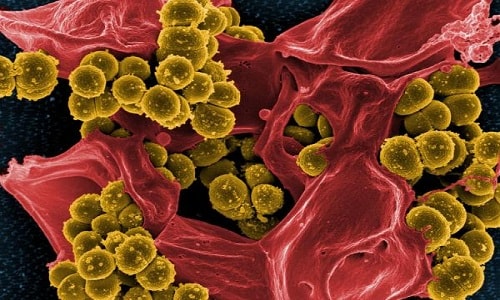New coating prevents bacterial contamination on medical devices
SLIPS coating with very low adhesion can prevent bacteria from contaminating and growing on medical devices.
 |
SLIPS coating could prevent bacteria from contaminating and adhering to medical devices. Photo: Flickr/NIAID. |
Joanna Aizenberg, a lecturer at the Wyss Institute at Harvard University in the US, successfully created a SLIPS coating with very low adhesion, which can prevent bacteria from growing on medical instruments and other devices, UPI reported.
"Infectious diseases transmitted through instruments are a major problem in healthcare, creating a burden for society with millions of dollars in health care costs. Antibiotics cannot solve this problem. We need to use new methods to reduce the risk of infection. This new product is an important step forward in the research process," said Dr. Elliot Chaikof, chief surgeon at Beth Israel Deaconess Medical Center, Boston, USA.
SLIPS coating can remove many impurities and can be used in many environmental conditions. Test results show that it can reduce bacterial adhesion by more than 98%.
“We are developing SLIPS for a variety of medical applications by testing it on various medical materials, ensuring the durability of the coatings, and incorporating the non-contamination properties of the SLIPS material into specific environmental conditions. Here, we have successfully applied SLIPS to a medical lubricant, demonstrating its great potential for integration into devices that are susceptible to bacterial accumulation and infection,” said Aizenberg.
The team also tested the SLIPS in a clinical setting by coating a mouse with a medical mesh. The mesh was implanted and then injected with Staphylococcus aureus, a common cause of staph infections. After three days, the mesh showed very little sign of infection, with an infection control rate of more than 90%.
According to VNE
| RELATED NEWS |
|---|
